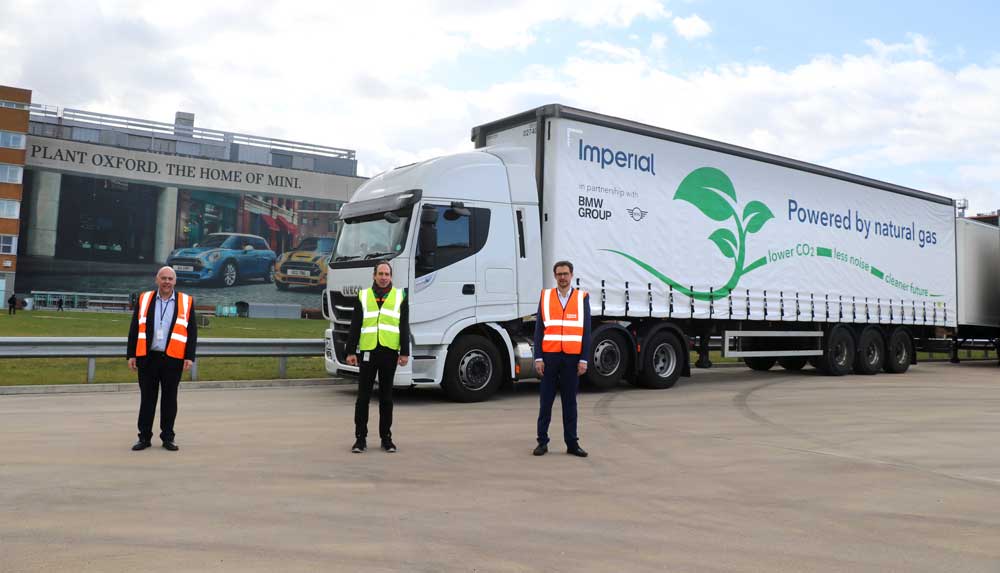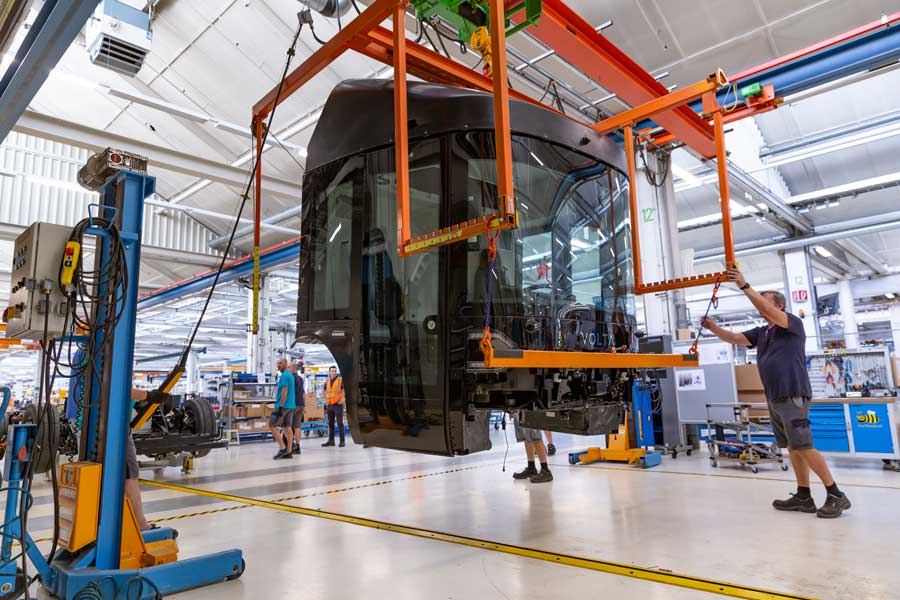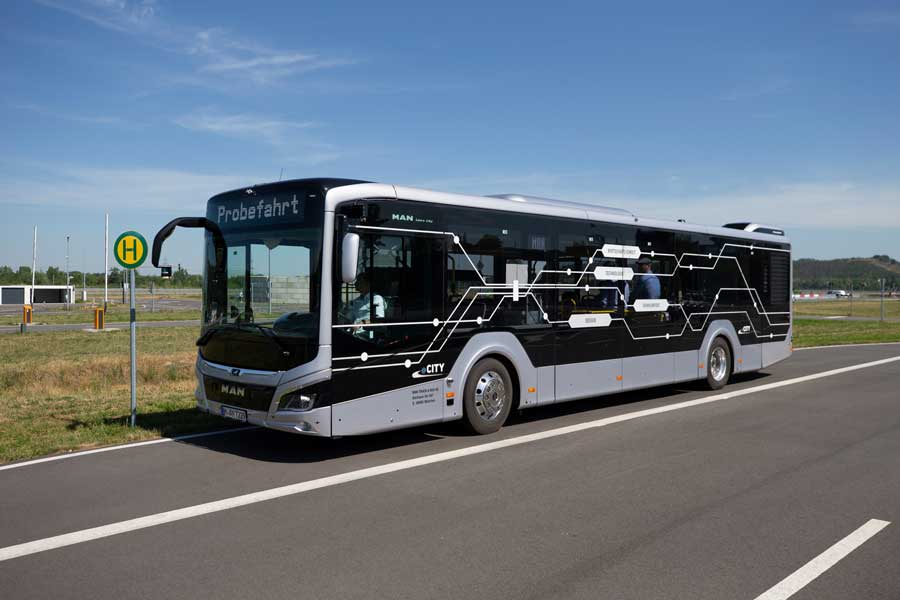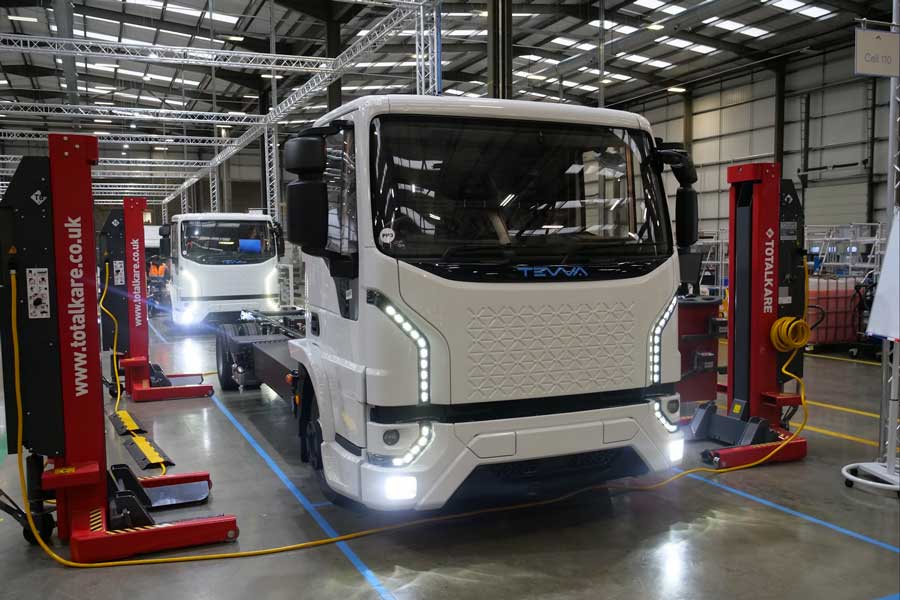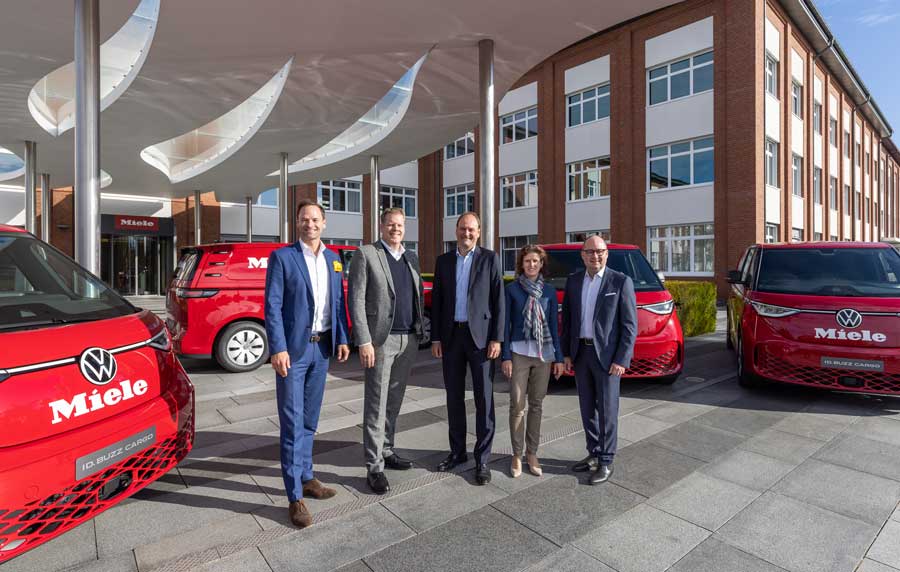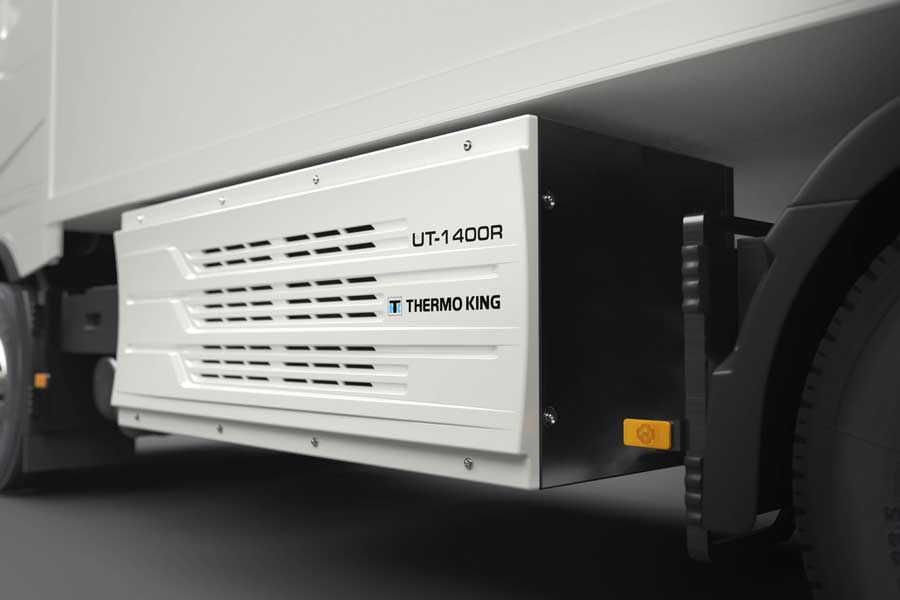A new fleet of lorries powered by liquefied natural gas (LNG) is helping to drive sustainable logistics at MINI Plant Oxford. 18 LNG lorries from Imperial have now hit the road, transporting parts and components from suppliers on 15 different routes across the UK to the home of the MINI brand.
LNG lorries have lower fuel consumption, produce fewer harmful emissions and are quieter on the roads. The new fleet has already delivered a reduction of approximately 20 per cent in CO2 and NOX emissions, compared to diesel alternatives. In future, a total CO2 reduction of up to 90 per cent is expected by using bio-LNG.
Thomas Frank, Director of Logistics, MINI Plant Oxford said: “We are really excited to be working with Imperial on this project as part of our wider efforts to improve sustainability throughout all areas of the BMW Group. With environmental benefits, lower emissions and quieter engines, these LNG-powered lorries will deliver components from across the UK to the heart and home of MINI in Oxford. The fleet will travel from more than a dozen key suppliers, including BMW Plant Hams Hall, and it means that around 20 per cent of all lorries now coming to MINI Plant Oxford will be powered by LNG fuel. This is a great example of how two companies can work together to achieve their sustainability goals.”
Imperial has successfully trialled LNG lorries in both the UK and Germany over the past 12 months. The company has installed its own LNG facility close to MINI Plant Oxford, which means vehicles on routes with limited refuelling opportunities can leave Oxford with a full tank before continuing their onward journey.
Mark Miles, Managing Director, Imperial UK, said: “At Imperial we don’t just focus on our profitability; our people and the environment are a very important consideration. We consider it our duty as part of the worldwide population to invest in Environmental, Social and Governance (ESG) and integrate respective practices whenever possible in the daily course of business; and so the opportunity to reduce our UK haulage operation’s environmental impact was compelling. We’re delighted to be working with the BMW Group and MINI Plant Oxford as part of a joint effort to improve sustainability in logistics, reconciling business efficiency with environmental protection.”
MINI Plant Oxford has already adapted to a 360-degree sustainability strategy involving heat regeneration, environmentally friendly production, the harvesting of rainwater and one of Britain’s largest solar energy facilities. The next step is to increase sustainability in all areas of its supply chain and logistics operations.
Transport logistics has a key role to play in achieving the BMW Group’s supply chain sustainability target, by reducing CO2 emissions per vehicle by 20 per cent by 2030 (base year: 2019). CO2-minimizing ‘Green Logistics’ concepts are also being developed.
The BMW Group is working with service providers to use natural gas-powered and electric lorries worldwide in order to reduce emissions in logistics. Several battery-electric lorries are already in use at the BMW Group Plants Munich and Landshut for transport trips within the plant gates and over short distances. The extended use of such lorries is undergoing continuous testing, while the possibility of using hydrogen-power is also under consideration.


